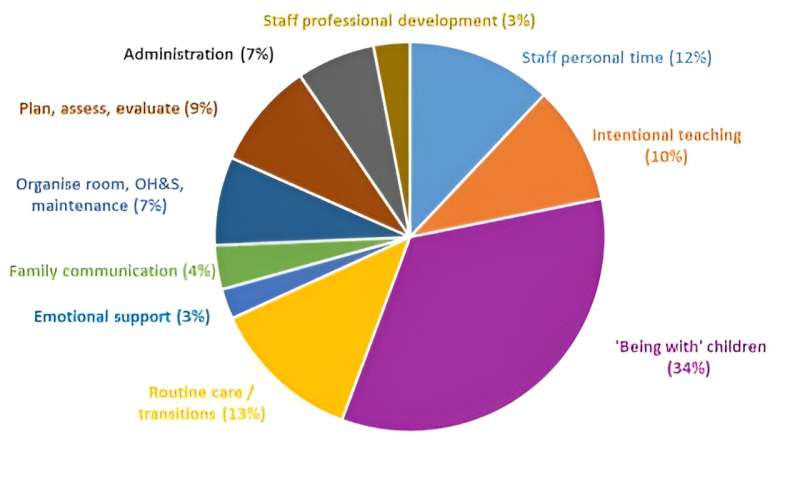This article has been reviewed according to Science X's editorial process and policies. Editors have highlighted the following attributes while ensuring the content's credibility:
fact-checked
trusted source
proofread
Report identifies complexity of childcare work in Australia and what works well

A five-year investigation into high-quality early childhood services in Australia has identified strong leadership and professional development builds a top workforce able to tackle increasing complexities of the job.
Led by QUT Associate Professor Megan Gibson, (pictured right), Shining a Light on Early Childhood Educators' Work report examined in depth what exemplary educators do across positions including directors, teachers, room leaders and educational assistants.
"Quality counts for staff as well as children," Associate Professor Gibson said.
"The study draws a picture of the decisions and actions that make high-quality early childhood settings and for children and their families' experiences that make a difference not just in their day-to-day but in outcomes over time."
Workforce shortages in the sector are unprecedented with estimates 37,000 new staff required by the sector by next year amid increased parental workforce participation.
"Early childhood education is difficult work and too often taken for granted," Associate Professor Gibson said.
"It requires caring and informed teaching tailored to the exploring, developing child, and the communities in which children and their families live."
The research involved more than 300 educators drawn from highly ranked childcare settings, based on the Australian Children's Education and Care Quality Authority.
Data was collected through a time use diary app, designed specifically for the study, that captured the daily activities of educators across 10 domains.
Work activities were reported for specific periods of time, in six-minute blocks, and covered the full day's range of work either at long day care, preschool and kindergarten services.
The findings illustrated the complexity of the work, the multiple tasks and responsibilities involved in teaching young children.
It also found ratings of feeling rushed, stressed, and having multiple demands were significantly higher for those who worked in preschools but there was no difference in ratings of satisfaction by type of childcare setting.
More information: Report: eprints.qut.edu.au/241514/1/EE … E_W_Report_Final.pdf
Provided by Queensland University of Technology





















